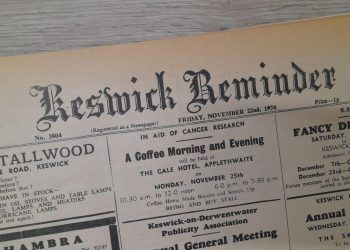
Cumbria’s two biggest council services are to continue operating county-wide after the county is reorganised into two new authorities, a leading local government publication reports.
The government approved a proposal in July to reorganise Cumbria County Council and its six districts into two new unitary authorities split into east and west. The proposal came out on top ahead of three other options.
The Secretary of State received four proposals from councils in Cumbria:
- The two councils – Allerdale and Copeland – jointly submitted a proposal for two unitary councils: West Cumbria comprising the area covered by Allerdale Borough, Carlisle City and Copeland Borough Councils and East Cumbria comprising the area covered by Barrow Borough, Eden District and South Lakeland District Councils.
- The two councils – Barrow and South Lakeland – jointly submitted a proposal for two unitary councils: ‘The Bay’ comprising the area covered by Barrow Borough, South Lakeland District and Lancaster City Councils and North Cumbria comprising the area covered by Allerdale Borough, Carlisle City, Copeland Borough and Eden District Councils.
- The two councils – Carlisle and Eden – jointly submitted a proposal for two unitary councils: North Cumbria comprising the area covered by Allerdale Borough, Carlisle City and Eden District Councils and South Cumbria comprising the area covered by Barrow Borough, Copeland Borough and South Lakeland District Councils.
- Cumbria County Council submitted a proposal for a single unitary council for the area of Cumbria County.
Speaking to the Local Government Chronicle (LGC), Allerdale Borough Council leader Mike Johnson and Copeland mayor Mike Starkie said the most likely names for the new unitaries would be ‘Cumberland’ for the western authority and ‘Furness and Westmorland for the eastern council.
Cllr Johnson said that he expected social care and children’s services to continue to be operated countywide. This could mean one of the councils running services for the whole county, or a new Cumbria-wide combined authority taking responsibility, said Cllr Johnson, who added that the reorganisation process is in its “very early stages”.
Mr Starkie also said that he expected social care and children’s services to continue on a countywide basis.
A recent development in the Local Government Reform (LGR) process has seen Cumbria County Council receive a letter from central government brushing off the threat of a judicial review.
County council leader Stewart Young sent a pre-action protocol letter in August, expressing an interest in a judicial review into LGR. It called the decision to split Cumbria into two constituencies “unlawful.”
A spokesman for Cumbria County Council said: “The County Council has received a response from Government in reply to its pre-action protocol letter to the Secretary of State. The council is now carefully considering the response before deciding on its next steps in relation to any potential future legal action.”
The approved proposal estimates that the reorganization could lead to annual savings of between £19.1m and £31.6m, dependent on the decisions and ambitions of the new authorities.
It also estimates that the costs of implementing the changes are expected to range between £17.6m and £23.8m, costs which, it is claimed, would be paid back through savings in year three.
The estimated costs do not take into account the cost of implementing a mayoral combined authority, which is included in the approved proposal.
Asked by the LGC whether currently county-wide services would be split across the new authorities, Mr Starkie expected that some services would be split and “some may not”, but that a final decision has not yet been made.
He said that a combined authority could incorporate county-wide services such as police, fire transport and infrastructure, under an elected mayor.
The proposals must now be put before Parliament, with the elections expected to take place for the authorities in May pending approval.








